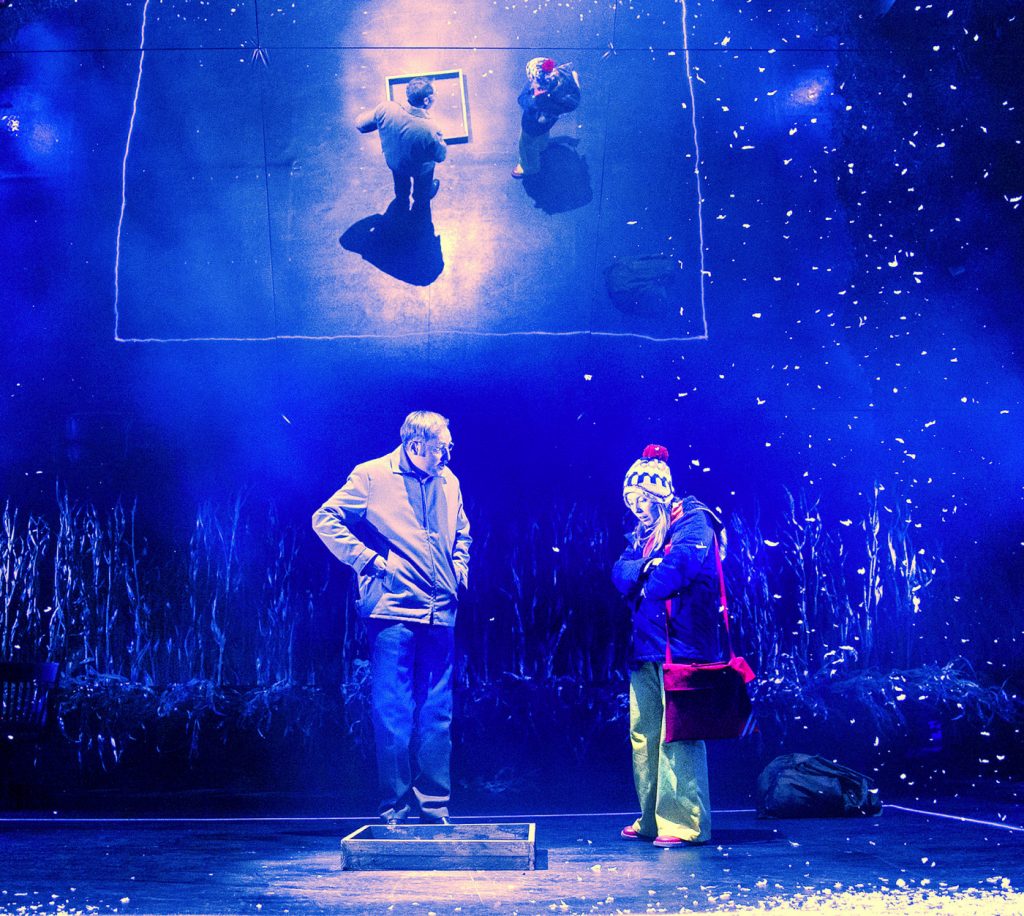
Courtesy of the Everyman Theatre
The well-known story from Alice Sebold’s best-selling novel and Peter Jackson’s 2009 blockbuster film has now moved to the theatre stage. The Lovely Bones follows the story of 14-year-old Susie Salmon, watching from heaven the repercussions of her death and murder.
Susie Salmon begins by confiding in the audience that the way she died was uncommon, “before things like that happened”. In the play, the teenage Susie is raped and murdered by her neighbour – a tragic tale that is uncomfortably familiar in the #MeToo era.
Starting in the 70s, in the time of David Bowie and sexual prowess, of fuck yous and gender non-binary, of punk, rock and Queen, music from the era is played to mark the passing of time. The play starts in a flash of light with a loud soundtrack playing to a crescendo. The audience sees a mirror hanging from the ceiling and a cornfield at the back of the stage, a constant presence throughout. When the mirror is lit, it becomes transparent and the audience can see the actors interact within the space. The performance is peppered with absurdist moments – needed for to break up the harsh, gloomy realism. The story shifts from Susie’s monologues about earlier moments of her life to the present, where her family and friends are still trying to figure out what happened to her.
Charlotte Beaumont gives an impressive performance as Susie Salmon, with a particularly memorable moment of her dancing carelessly to David Bowie, giving the audience a chance to forget for a moment that they are not seeing a teenage girl dancing in her bedroom, but of someone dead testing the limits of her heaven. The depiction of Susie’s mother is equally as interesting. She isn’t passive, but haunted by her daughter’s death to the point of desperation: “I just want to live! I want to be more than a mother!”
The Lovely Bones is not about justice. The audience echoes Susie’s frustration as her attempts to lead her family with clues of who her murderer is are thwarted. But Franny, Susie’s counsellor in heaven, says that “the living keep on living” – and that is what we should take from The Lovely Bones. What we see and hear throughout the play is Susie’s witness testament filled with memory, love and trauma as we see the other characters battle with their own personal hells. Despite the grief, the play is strangely uplifting and filled with vibrant youthfulness; it says, to whoever is living in a temporary hell right now, your time to flourish will be soon.
Filed under: Theatre & Dance
Tagged with: #MeToo, drama, Everyman, grief, hope, liverpool, the lovely bones, theatre, trauma



Comments